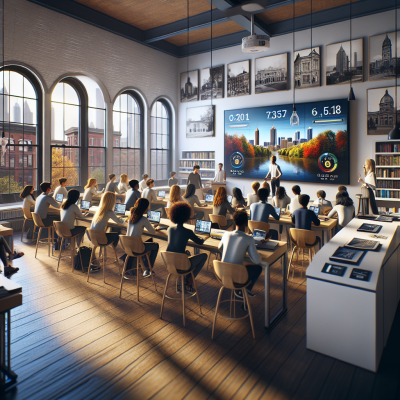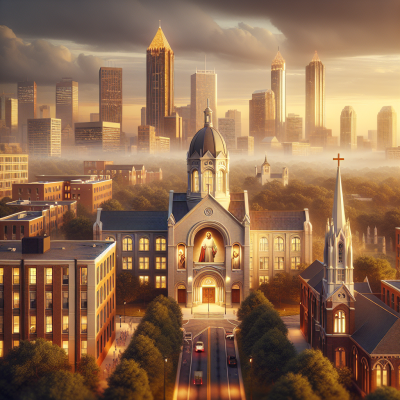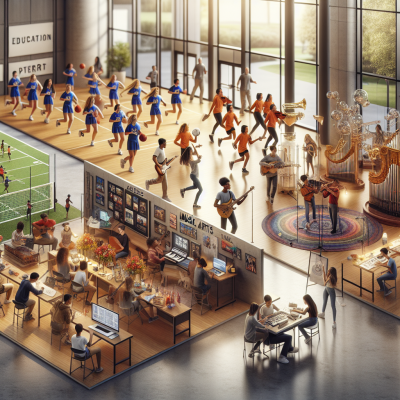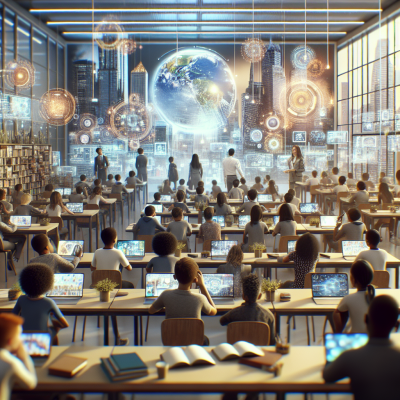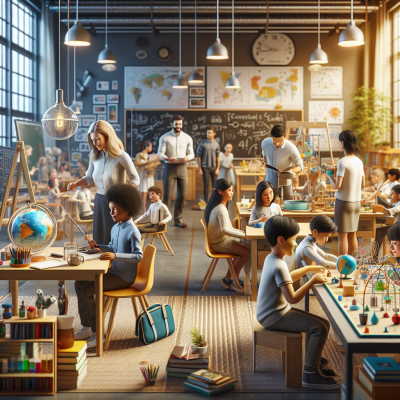
Alternative and Specialized Education in Atlanta
Montessori and Waldorf Schools
Atlanta offers diverse educational approaches beyond traditional methods, with Montessori and Waldorf schools providing unique learning experiences. These schools focus on holistic development and foster creativity, critical thinking, and independence in students.
Montessori Schools: Montessori education in Atlanta is designed around the philosophy of child-centered learning, where students are encouraged to learn through hands-on experiences and collaborative play. The curriculum is often individualized to meet the needs of each child, emphasizing practical life skills, sensory activities, and self-direction. Schools such as Atlanta Montessori International School and Arbor Montessori School are notable institutions that implement these principles, catering to various age groups from preschool through middle school.
Waldorf Schools: Waldorf education is based on the teachings of Rudolf Steiner and emphasizes a balanced development of intellectual, artistic, and practical skills. The Waldorf School of Atlanta provides an education that integrates arts and academics within an environment that values imagination and creativity. The curriculum often includes a strong focus on storytelling, music, and arts, along with traditional academic subjects, fostering a love for learning in a nurturing atmosphere. This approach aims to develop free and morally responsible individuals equipped with a high degree of social competence.
Special Education Resources
Atlanta's commitment to inclusive education is reflected in its extensive special education resources, offering support and tailored learning programs for students with diverse needs. Numerous public and private institutions provide specialized services, ensuring that all children, regardless of their challenges, have access to meaningful education.
The Atlanta Public Schools (APS) district includes dedicated programs and support services for students with disabilities, ranging from mild to severe. These include individualized education programs (IEPs), speech therapy, occupational therapy, and counseling services. Specialized institutions, such as The Lionheart School and The Howard School, focus on personalized teaching strategies that enable students with learning disabilities to thrive academically and socially.
Furthermore, organizations like the Georgia Parent Support Network and the Georgia Advocacy Office work tirelessly to support families and ensure students receive appropriate accommodations and services. These resources aim to empower students and help them achieve success at their own pace and ability level.
Arts and STEM-Focused Schools
Atlanta embraces the integration of arts and STEM (Science, Technology, Engineering, and Mathematics) in education, recognizing their importance in fostering innovative and critical thinking skills necessary for the 21st century.
Arts-Focused Schools: Schools like the Atlanta International School and North Atlanta High School offer robust arts programs, including visual arts, theater, music, and dance. These schools provide a dynamic environment where students can explore their creative passions, gain technical skills, and engage in cultural exchanges. The arts are seen as a crucial component of a well-rounded education, promoting emotional expression, collaboration, and cultural awareness.
STEM-Focused Schools: Atlanta is home to several STEM-focused institutions that prepare students for future careers in technology and science. Schools such as the KIPP Atlanta Collegiate and the Drew Charter School emphasize STEM disciplines through project-based learning and real-world applications. These programs often include robotics clubs, coding classes, and science fairs, providing students with the tools needed to excel in rapidly evolving fields.
In summary, Atlanta's alternative and specialized education landscape offers a variety of unique educational pathways. Whether through the child-centered approaches of Montessori and Waldorf, the supportive resources for special education, or the dynamic integration of arts and STEM, students have the opportunity to pursue an education that aligns with their interests and personal strengths.
